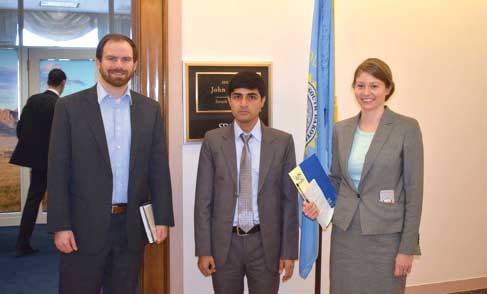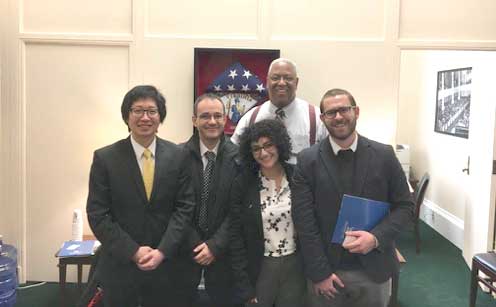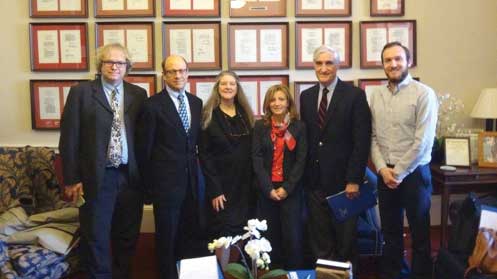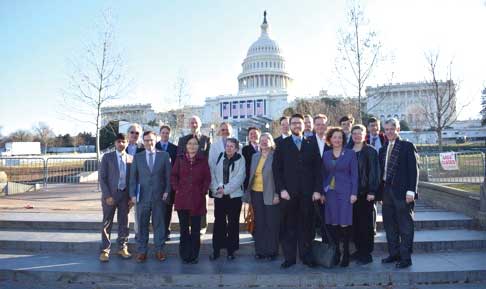FECS Congressional Visit 2017
Greg Hamilton, Webmaster

Greg Hamilton
Prior to the 2017 April Meeting, members of the FECS executive committee along with close to fifty other APS members converged on Capitol Hill to engage and inform Congress men and women on major science related issues under the Trump administration. The Congressional Visit Day (CVD), held in late January just after the presidential inauguration, provided an opportunity for scientists across the country (and a few international colleagues) to personally reach legislators and their staff on topics like budget increases for the NSF and DOE, appropriation of funds for STEM education, clean energy jobs, and how to effectively address the helium shortage.




Yunseong Nam, Maria Longobardi and Raju Prasad Ghimire at the Congressional Visit 2017
Most importantly, APS members shared personal stories about their research and the impact funding had on scientific progress and innovation. Yunseong Nam, one of our Members-at-Large and part of the group that met with the Maryland and Virginia congressional offices, explained his research in quantum information and how federal funding played a key role in its his field’s advancement. He noted that, much like the “race to the moon”, the race for quantum computing necessitates critical funding and both national and international support. He gave Congress more reason to support increased funding by describing to legislators the impact of quantum information on drug development, cybersecurity, and multiple other fields. Numerous congressional offices requested more information and statistics from APS regarding the funding requests and for “dear colleague” letter drafts to be circulated.
Continuing to inform Congress on science related issue and advocating for science budgeting and funding is of paramount importance to APS and, by extension, FECS. Many of our US-based members are in fields or occupations that can be directly affected by Congressional policies, and such policies can often indirectly impact our international FECS members as well. FECS intends to continue the dialogue with legislators that began in January, highlighting the issues that acutely affect early career scientists and informing Congress on the goals that FECS and APS wish to achieve in the coming future.
Greg is an undergraduate at the University of Richmond, VA, studying physics and math. He has worked on atomic force microscopy image correction at Richmond for three years. He attended the University of Oxford for a year abroad and worked on the SNO+ collaboration. He has applied to graduate school and hopes to concentrate in condensed matter theory and experiment.
